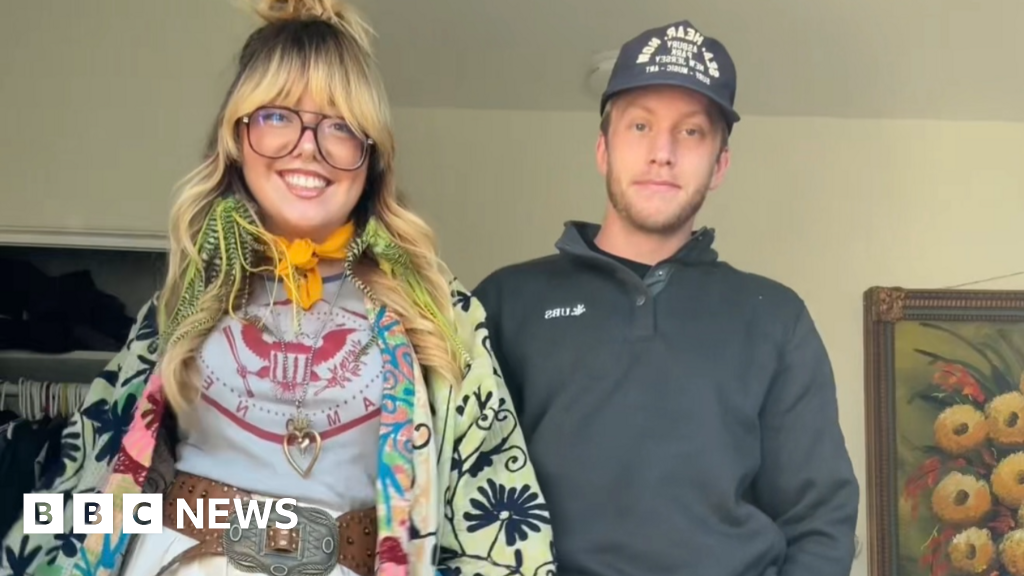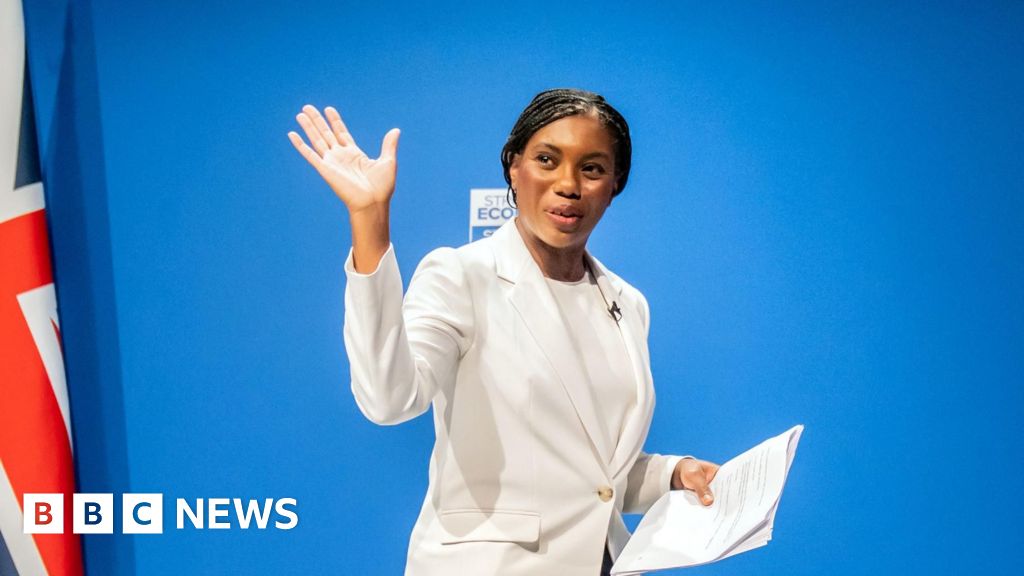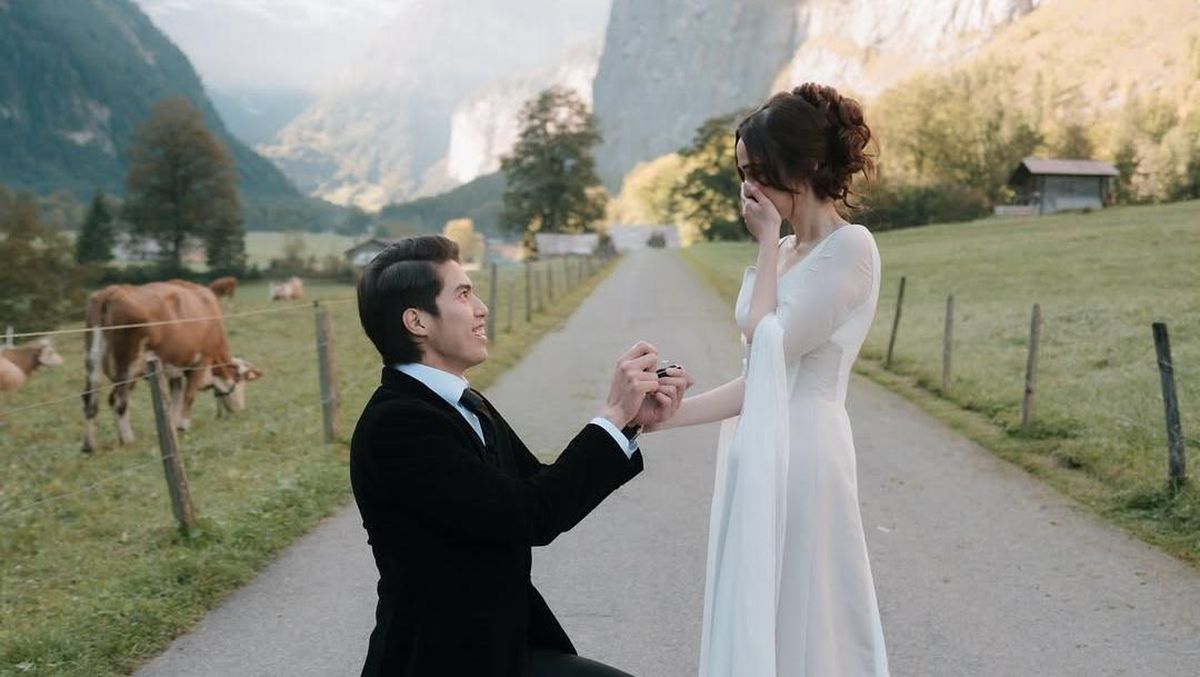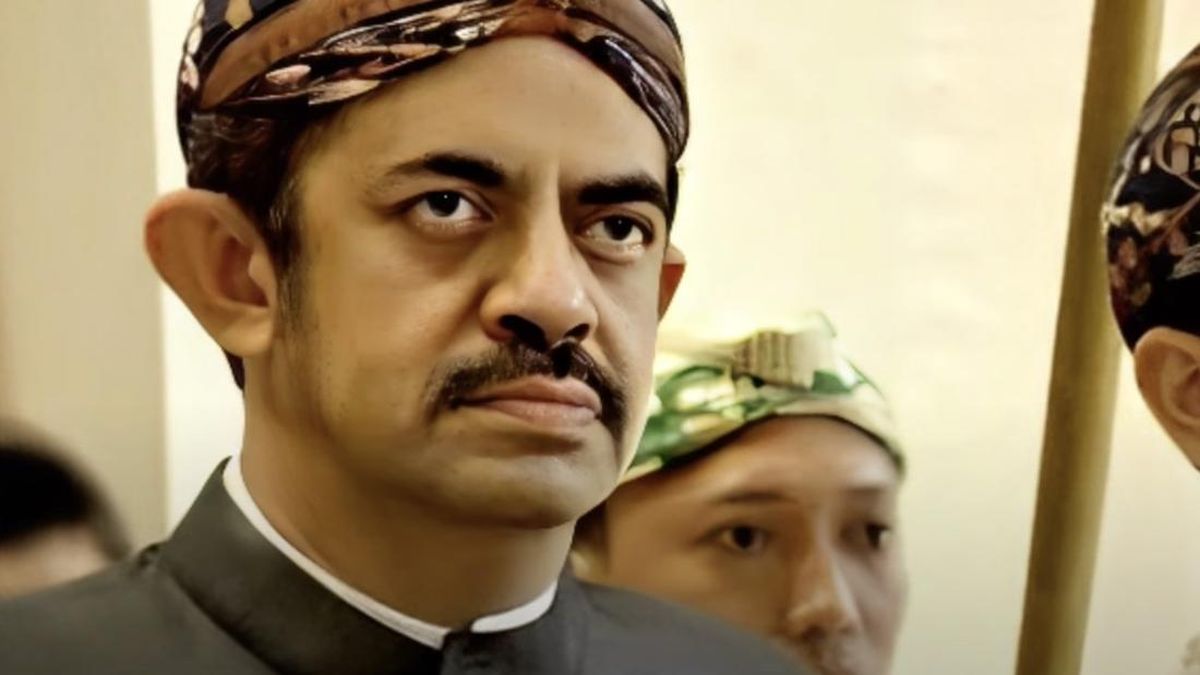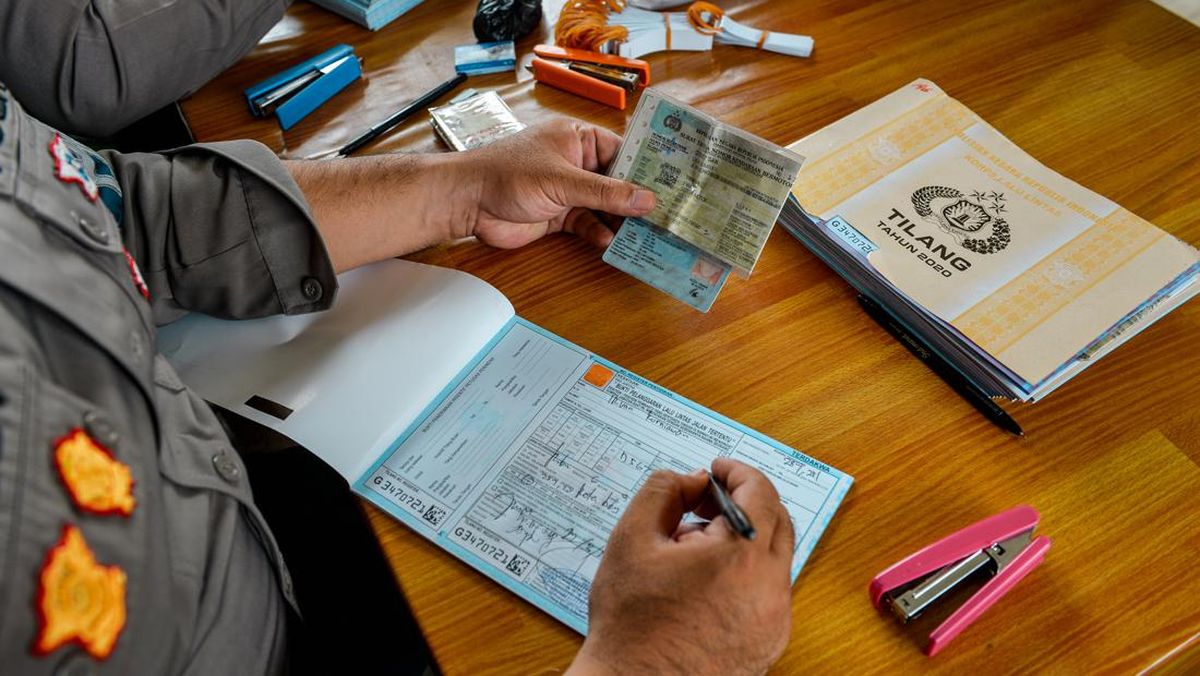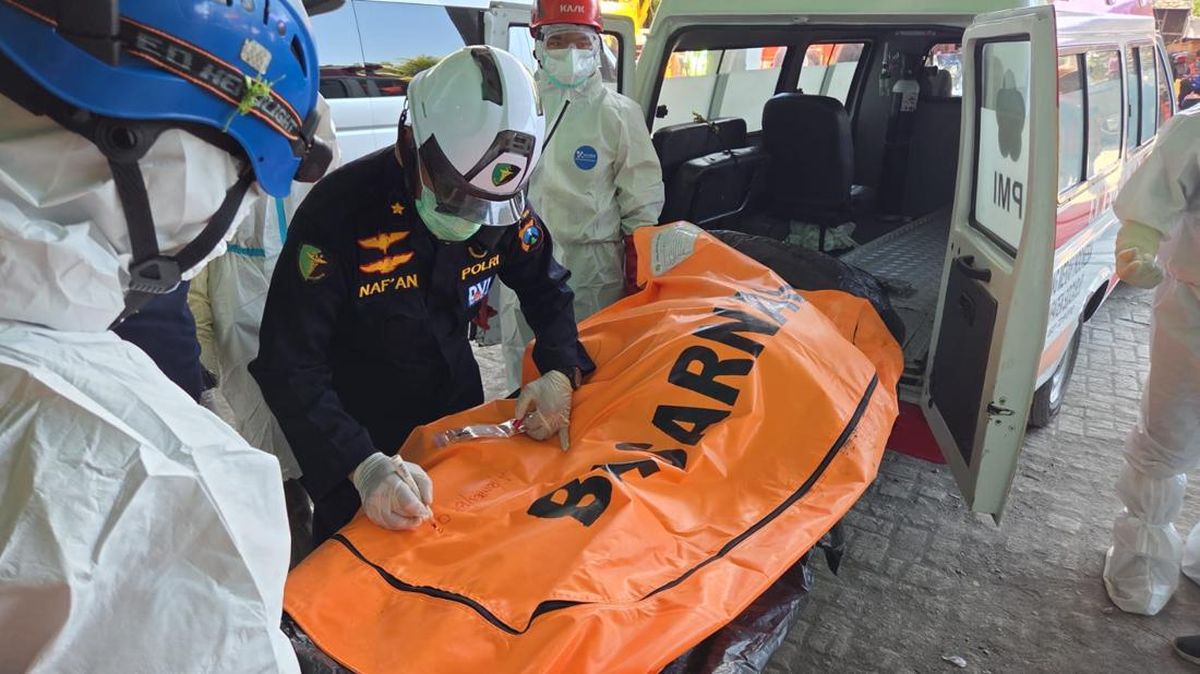For many of us, Rob Reiner will forever be "Meathead," the liberal foil to Archie Bunker in CBS' "All In the Family." But it's as a director that he's really made his mark, with some of the most memorable movies ever: "When Harry Met Sally," "Stand By Me," "A Few Good Men," and "The Princess Bride."
But Reiner's first film almost didn't get made. All he had for "This is Spinal Tap," about a failing made-up British rock band, was a 4-page outline. No script, because the movie was totally improvised. Released in 1984, it became a cult classic and is ranked as one of the funniest films of all time.
Now, 41 years later, Reiner and the band have come back together for a sequel. We joined them on the set in New Orleans.
If it looks like a real rock concert, that was the idea. But these are pretend rock fans cheering on the, well, older pretend band, Spinal Tap. The new film reunites frontman David St. Hubbins, played by Michael McKean, lead guitarist Nigel Tufnel, played by Christopher Guest, and bass player Derek Smalls, played by Harry Shearer.
And as in the original, Reiner is both director of the actual film, and he plays the director in the film.
Earnest, but hapless documentary filmmaker Marty DiBergi, straight man to the band members' eccentricities.
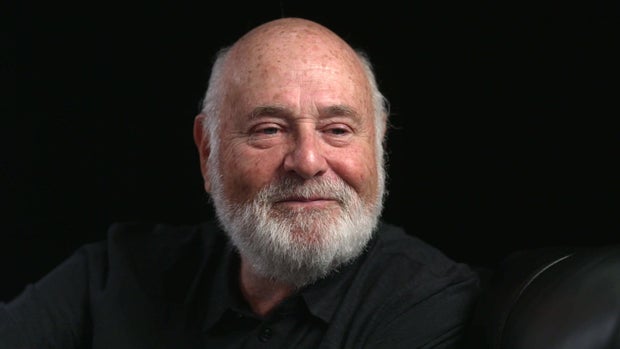 Rob Reiner
60 Minutes
Rob Reiner
60 Minutes
All day, we watched Reiner go back and forth between the stage and his director's set-up behind the stage, always playing one role or the other.
Lesley Stahl: You're the director directing yourself–
Rob Reiner: I know it's crazy.
Lesley Stahl: and the documenta—
Rob Reiner: It's crazy. It's making me nuts!
But he still had time for a little shtick.
Lesley Stahl: Are you a method actor?
Rob Reiner: We have a good lunch? Is there a good break that I can lie down? That's my method. No, I don't-- no.
Reiner trained in theater and improv at UCLE, then at 23, was cast by producer Norman Lear, a family friend, to play left-wing "Meathead" opposite Carroll O'Connor's Archie Bunker.
He thought the show would last 13 weeks. It turned into eight years, five of them as the number one show in the country.
Lesley Stahl: So it's the early 1980s, you've just finished "All in the Family." The whole country –
Rob Reiner: Yes.
Lesley Stahl: knew who you were–
Rob Reiner: Now nobody knows.
Lesley Stahl: You decide you're gonna direct your first feature film.
Rob Reiner: Right.
Lesley Stahl: You try to do something really safe.
Rob Reiner: Well, people would say, "I can't believe your first movie would be-- improvised, there'd be no script. And-- that's scary." And, to me, it was the opposite. I wasn't scared.
The film was a fake documentary about a fake band that satirized the antics of real rock musicians, on stage and in the green room.
Nigel Tufnel (from "This is Spinal Tap): There's some problems here. I don't even know where to start.
Rob Reiner: Apparently Van Halen had a rider in their contract "No brown M&Ms." So some roadie had to sit there picking out the brown M&Ms. It's crazy. So we looked at that, and we said, "There's a scene."
Nigel's complaint: the bread's too small.
Ian Faith (from "This is Spinal Tap): You'd like bigger bread?
Nigel Tufnel (from "This is Spinal Tap): Exactly. I don't understand how--
Ian Faith (from "This is Spinal Tap): You could fold this though. I mean you could fold this..
Nigel Tufnel (from "This is Spinal Tap): Well no, then it's half the size.
Ian Faith (from "This is Spinal Tap): No, not the bread. You just fold the meat.
Nigel Tufnel (from "This is Spinal Tap): Yeah, but then it.. Then it breaks apart like this.
Ian Faith (from "This is Spinal Tap): No, no, no.. You put it on the bread like this, see.
Nigel Tufnel (from "This is Spinal Tap): But then if you keep folding it.. it keeps breaking..
Ian Faith (from "This is Spinal Tap): Why would you keep folding it?
Rob Reiner: We all loved rock 'n' roll. The four of us, we grew up on rock 'n' roll. So that was the trick, is to make fun of it, and at the same time honor it.
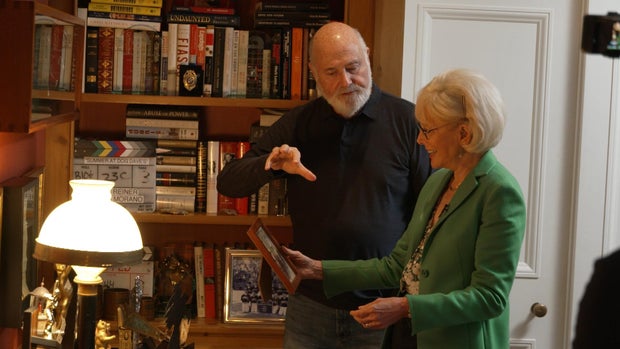 Rob Reiner and Lesley Stahl
60 Minutes
Rob Reiner and Lesley Stahl
60 Minutes
But it wasn't easy raising money for a film with no script that the audience might think was about a real band. Reiner made a demo reel and gave it to an executive.
Rob Reiner: And he went, "No. Not this. No, we don't want this."
After multiple rejections, Norman Lear and executives at Embassy Pictures agreed to take a meeting.
Rob Reiner: And I go through this insane pitch about why they should make the movie. "And it's gonna be successful: It's about rock 'n' roll, the kids'll like it, they'll watch it, there'll be repeat business"-- I'm going crazy. I walk out of the room. Norman tells everybody, "Ya gotta l-- ya gotta let him do it, he's so crazy."
Lesley Stahl: And so passionate.
Rob Reiner: So they said, "Okay," I'll give this kid a shot."
The film featured cameos from Billy Crystal, Paul Shafer, Fran Drescher, but what Reiner says really made the film was the talent of Christopher Guest, Michael McKean, and Harry Shearer, who wrote and played all the songs themselves, and improvised every scene.
Lesley Stahl: So when Marty DiBergi, Rob, was interviewing you, did you ever know what the questions were
Christopher Guest, Michael McKean: [shake heads no]
Harry Shearer: After he asked them, yes.
As in perhaps the film's most famous scene:
Marty DiBergi (from "This is Spinal Tap): Does that mean it's louder? Is it any louder?
Nigel Tufnel (from "This is Spinal Tap): Well, it's one louder, isn't it? It's not 10.
Marty DiBergi (from "This is Spinal Tap): Why don't you just make 10 louder, and make 10 be the top number, and make that a little louder?
Nigel Tufnel (from "This is Spinal Tap): (Pause, chews gum) These go to 11.
Lesley Stahl: What was the first audience reaction?
Rob Reiner: They didn't know what the heck was going on.
Christopher Guest: We went to a screening in Texas and two girls commented, "These guys are so stupid."
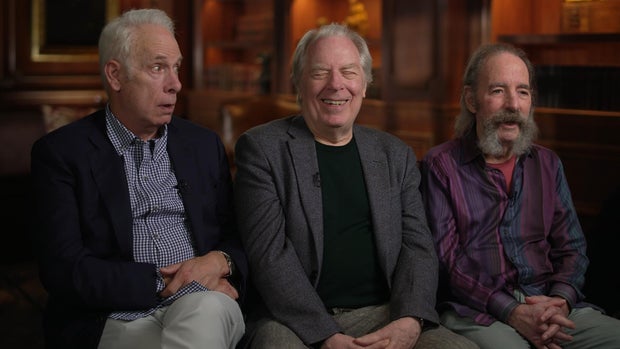 Christopher Guest, Michael McKean, Harry Shearer
60 Minutes
Christopher Guest, Michael McKean, Harry Shearer
60 Minutes
The film did OK in theaters, but became a sleeper hit on home video, credited with launching the mockumentary genre, and stylistically inspiring some of the most popular TV shows of the last few decades, and some rave reviews.
Lesley Stahl: "A sacred rock artifact," "the 'Citizen Kane' of Rockumentary."
Rob Reiner: Oy.
Lesley Stahl: Well, that's pretty good.
Rob Reiner: When you read that, What a bar-- I mean, What are-- what are we, crazy to do another one? It's crazy. It's-- the bar is just way too high.
Rob Reiner knows a little something about a high bar. His father, Carl Reiner, was one of the biggest, funniest and most beloved actors, writers, and directors of his day.
Lesley Stahl: I heard there was a time in your life that you wanted to change your name?
Rob Reiner: My father thought, "Oh, my God, this poor kid is worried about being in the shadow of a famous father. And he says, "What do you want to change your name to?" And I said, "Carl." I just wanted to be like him.
Lesley Stahl: You have said your father didn't get you.
Rob Reiner: No, not when I was little. Norman Lear was the first person that got me. I mean, I was playing jacks with his daughter. Norman says to my dad, "You know, this kid is really funny." And I think my dad said, "What? That kid?" That kid? He's a-- s-- sullen, he sits quiet. He doesn't-- you know, he's not funny." He didn't think I was at-- anyway.
Gordy (From "Stand By Me"): I'm no good. My dad said it, I'm no good.
Chris (From "Stand By Me"): He doesn't know you.
Reiner told us this painful scene in his 1986 movie, "Stand By Me," was autobiographical.
Gordy (From "Stand By Me"): He hates me. I'm no good.
Rob Reiner: That's a scene I wrote in a hotel room in Oregon, and as I'm writing this scene-- I'm crying. I'm actually crying. When I was making it-- I knew that he loved me and he did understand me. But as a little boy, that's what I felt. But I've gotta tell you, when I was 16 years old, my dad and Mel were working on a routine, I came up with an idea for a joke, and they used it.
Lesley Stahl:
Rob Reiner: And it was the greatest validation at age 16.
It was a bit for Reiner and Mel Brooks' 2,000-year-old man routine about the ancient origin of applause.
Rob Reiner: You'd go, (CLAP) "Whoa! (CLAP) Oh, is (CLAP) that (CLAP) good! Wow. (CLAP) Wow." "If-- somebody was great, (LAUGH) you could kill yourself.
Mel Brooks (From "2,000 Year Old Man"): (hitting face) Ah! Oh!
Carl Reiner (From "2,000 Year Old Man"): People actually hit themselves in the face?
Mel Brooks (From "2,000 Year Old Man"): Whaa! Oh boy!
Carl Reiner (From "2,000 Year Old Man"): That hurts though.
Mel Brooks (From "2,000 Year Old Man"): Yeah, you bet it hurts.
Rob Reiner: So Bernie was the first guy-- when nobody was looking, he pulled his head out, (CLAP) and he (CLAPPING) just went like that
Mel Brooks (From 2,000 Year Old Man): Don't hurt your faces, folks. Just a simple little clapping will suffice. Thank you very much.
Rob Reiner: This is the sword that Westley used in "The Princess Bride."
Reiner's study is full of mementos from a career that would make any father proud, not to mention a mother. Reiner gave his a star turn in Meg Ryan's famous deli scene in "When Harry Met Sally."
Estelle Reiner (From "When Harry Met Sally"): I'll have what she's having.
But it can be awkward having your mom on set, as Reiner discovered when Meg Ryan needed a little coaching.
Rob Reiner: First couple of times, she didn't do it full out. And finally I sat across from Billy. And I s-- acted it for her. I said, "This is what–
Lesley Stahl: What?
Rob Reiner: --and I'm pounding the table, "Yes! Yes! Yes!" And I'm realizing I'm having an orgasm in front of my mother, you know? There's my mother over there.
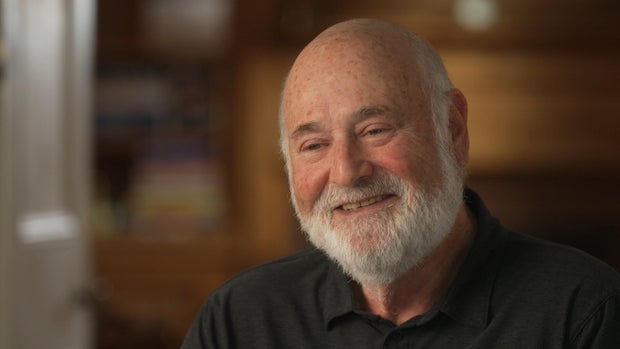 Rob Reiner
60 Minutes
Rob Reiner
60 Minutes
And fun fact: Reiner actually changed the movie's ending to a happy one, after he met his now-wife Michele, with whom he has three grown children, and who's now a producer of his films, including the new "Spinal Tap."
Rob Reiner directing actors: Start-- start the thing.
So why at age 78 make a sequel to his very first film? Fans clamored for one for years, but neither Reiner nor the actors owned the rights, until Harry Shearer sued and got them back.
Rob Reiner: Now it's 40 years later, we have these rights: Whaddaya do with 'em? And we started throwing out ideas.
As reiner showed us in his Los Angeles edit room..
Rob Reiner: This is about me tracking down all the band members. They haven't talked to each other in 15 years.
He finds Nigel in the north of England running, of all things, a cheese and guitar shop.
Marty DiBergi (from "Spinal Tap II: The End Continues"): And you sell both?
Nigel Tufnel (from "Spinal Tap II: The End Continues"): Yes and no. Sometimes people come in with a guitar and they trade for cheese.
Marty DiBergi (from "Spinal Tap II: The End Continues"): Really?
Nigel Tufnel (from "Spinal Tap II: The End Continues"): Yeah. And sometimes it's the opposite. What I do is I go like this. ["WEIGHS" CHEESE W/ HANDS] Then I go like this. Let's say.. ["WEIGHS" GUITAR] (nods) Close.
Lesley Stahl: He's totally ad libbing.
Rob Reiner: Yeah yeah.
Rob Reiner: We schnadel with each other, and whatever comes out--
Lesley Stahl: We schnadel with each other?
Rob Reiner: Yeah, it's, like, doing schtick, you know, or–
Lesley Stahl: Are you and I schnadeling?
Rob Reiner: We are schnadeling right now.
Lesley Stahl: This very minute–
Rob Reiner: We're in the process of schnadeling right now.
The new film features some repeat cameos, and some new, big ones: Elton John, and Paul McCartney, who also did some schnadeling.
Lesley Stahl: How concerned are you, you know, sequels can tarnish the reputation of an original film.
Christopher Guest: I'm hoping it tarnishes someone else's reputation.
Maybe all those aging rockers, who like "Spinal Tap," are still at it.
Lesley Stahl: Look at Mick Jagger. You know he's a great-grandfather?
Michael McKean: Yes.
Harry Shearer: Wow.
Lesley Stahl: And he has been for-- those kids are not little kids.
Christopher Guest: No, I think-- I think one of them is 70, in fact. I think, which is-- you think-- you're thinking, "Oh, the math of that doesn't work." But doesn't it?
So will this new film work?
Rob Reiner: I have no idea, ever. All the films I've made I never know what's gonna work, what's gonna not-- I try to s-- get something I like.
Rob Reiner: And if I like it, then I say, "Well, at least I like it. Somebody may-- hopefully somebody else is gonna like it."
Produced by Shari Finkelstein. Associate producer, Collette Richards. Broadcast associate, Aria Een. Edited by April Wilson.
One of America's most recognized and experienced broadcast journalists, Lesley Stahl has been a "60 Minutes" correspondent since 1991.


